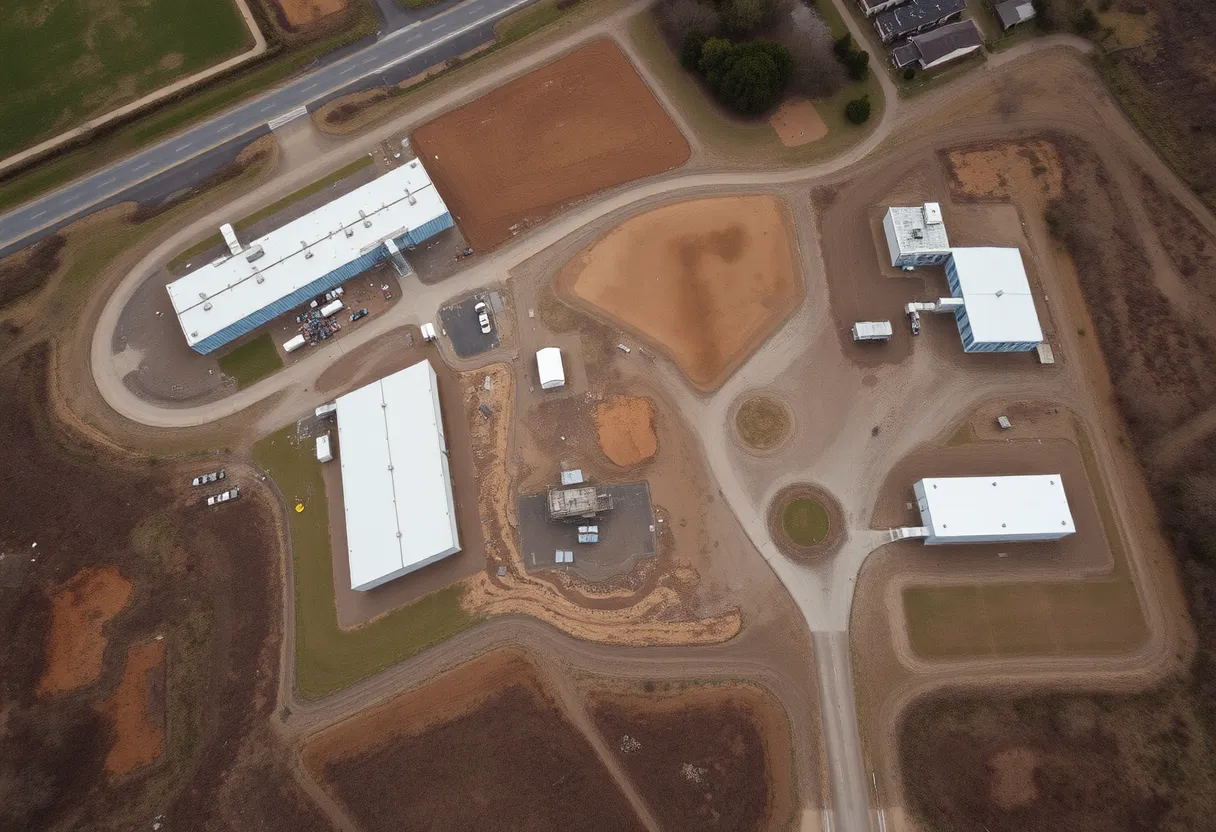News Summary
The bankruptcy of the Velsicol Chemical Company in Memphis has raised urgent discussions about the environmental contamination at its former plant site. State officials are considering federal intervention and a Superfund designation, critical for effective cleanup efforts. Residents express concern over the ongoing hazardous conditions, with soil tests revealing pesticide levels above safety limits. The potential transition of site management to federal oversight creates hope for addressing years of pollution, amidst community frustrations regarding health risks and transparency from Velsicol.
Memphis: Velsicol’s Bankruptcy Prompts Cleanup Debate
The former Velsicol Chemical Company plant in Memphis, responsible for decades of toxic pesticide production, has filed for bankruptcy. This development has reignited discussions about the ongoing hazardous contamination at the site and the potential for federal intervention to initiate cleanup efforts under the Superfund program.
State officials are currently evaluating whether to refer the Velsicol site for federal management, a move that could activate the Superfund program, which has been used since 1980 to remediate toxic locations when responsible parties are unable to conduct cleanups. A public comment period is now open, allowing residents and stakeholders to voice their opinions regarding the site’s future until July 21, 2025.
Despite longstanding pollution issues, the Velsicol facility has not been classified as a Superfund site, even as it has been linked to significant contamination of soil, water, and surrounding neighborhoods. The plant was operational under a Resource Conservation and Recovery Act (RCRA) permit, enabling it to legally manage hazardous waste, including pesticides such as DDT and chlordane. Both chemicals are notorious for causing neurological damage in humans and wildlife and for leaving lasting pollution in the environment.
Contamination Concerns
Recent soil tests have revealed pesticide concentrations that exceed the Environmental Protection Agency (EPA) residential contamination limits, signaling the ongoing risk posed by the site. Contaminants have seeped into nearby properties and major water bodies, including the Wolf River, raising alarms about public health and the potential impact on the Memphis Sand Aquifer, the drinking water source for over a million residents.
The contamination issue is exacerbated by a chemical plume that Velsicol is attempting to manage, underscoring the scope of the environmental challenge. The facility occupies approximately 126 acres, complicating cleanup efforts. Additionally, the Department of Environment and Conservation (TDEC) has tentatively chosen not to renew Velsicol’s RCRA permit, a decision that could transition oversight of the site to the state as an environmental trust.
Financial Implications
As part of its bankruptcy proceedings, Velsicol has proposed a settlement to contribute roughly $3.8 million over five years into the environmental trust while still being liable for cleanup costs estimated between $137 million and $143 million. The ever-increasing financial burden highlights the substantial resources required to address the long-standing contamination.
Site History and Previous Efforts
Velsicol has a contentious history with environmental management. Other Velsicol locations across the United States have been designated as Superfund sites, accruing high cleanup costs since regulation began. Notably, two landfills in Tennessee, where Velsicol disposed of hazardous chemicals, were previously marked as Superfund sites, benefiting from cleanup efforts that ultimately removed them from the National Priorities List.
Community frustration regarding Velsicol’s slow cleanup progress and lingering health risks continues to mount. Local residents have expressed concerns about the transparency of the company’s pollution management and potential fraudulent actions by its leadership. The public inquiry into these matters has fueled doubts about Velsicol’s commitment to addressing the pollution it has caused.
Moving Forward
As the state of Tennessee deliberates its next steps regarding Velsicol’s management and cleanup, the impending decision on whether to invoke the Superfund program looms large. The potential for federal involvement could lead to a more rigorous cleanup process, although residents are keenly aware that even effective remediation will take time. The community remains alert, advocating for swift action to resolve years of environmental neglect.
The outcome of this situation is pivotal not only for the legacy of the site but also for the health and safety of surrounding residents who have endured the consequences of Velsicol’s operations for far too long.
Deeper Dive: News & Info About This Topic
HERE Resources
Velsicol’s Proposal Sparks Outrage as North Memphis Community Demands Environmental Justice
Additional Resources
- MLK50: Will Velsicol Be Memphis’ Next Superfund Site?
- Wikipedia: Superfund
- MLK50: Velsicol’s Defunct Memphis Plant May Become Environmental Trust
- Google Search: Velsicol Chemical Company Memphis
- Tennessee Lookout: Superfund Site or Waste Management?
- Encyclopedia Britannica: Pesticide
- Tennessee Lookout: Velsicol Brokering Chemicals Years After Memphis Plant Closure
- Patch: Memphis Still Endures Velsicol’s Toxic Legacy

Author: STAFF HERE MEMPHIS WRITER
The MEMPHIS STAFF WRITER represents the experienced team at HEREMemphis.com, your go-to source for actionable local news and information in Memphis, Shelby County, and beyond. Specializing in "news you can use," we cover essential topics like product reviews for personal and business needs, local business directories, politics, real estate trends, neighborhood insights, and state news affecting the area—with deep expertise drawn from years of dedicated reporting and strong community input, including local press releases and business updates. We deliver top reporting on high-value events such as Beale Street Music Festival, Elvis Week, and Memphis in May International Festival. Our coverage extends to key organizations like the Greater Memphis Chamber and the Memphis Convention & Visitors Bureau, plus leading businesses in logistics, healthcare, and music that power the local economy such as FedEx, St. Jude Children's Research Hospital, and AutoZone. As part of the broader HERE network, including HEREBristol.com, HEREChattanooga.com, HEREKnoxville.com, and HERENashville.com, we provide comprehensive, credible insights into Tennessee's dynamic landscape.






